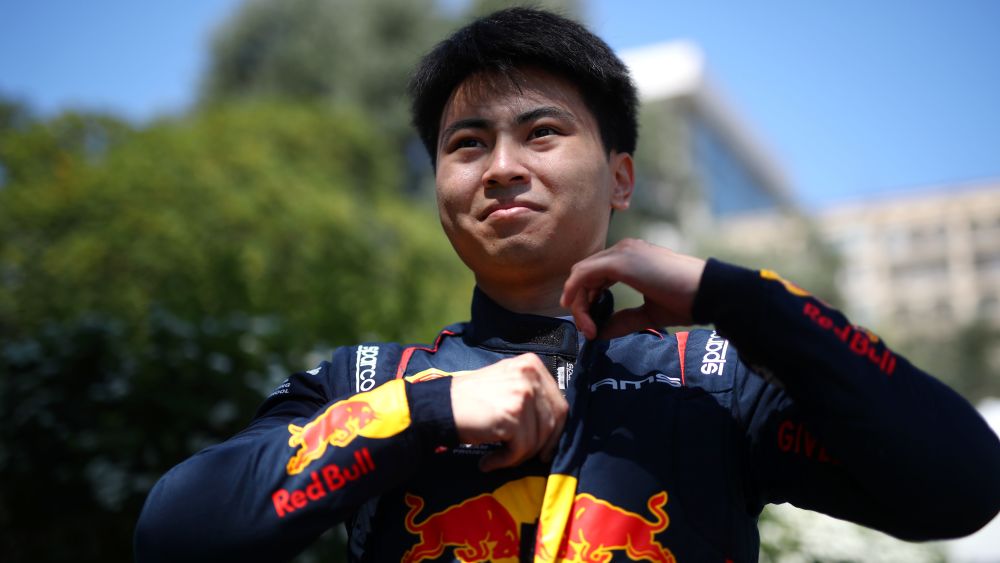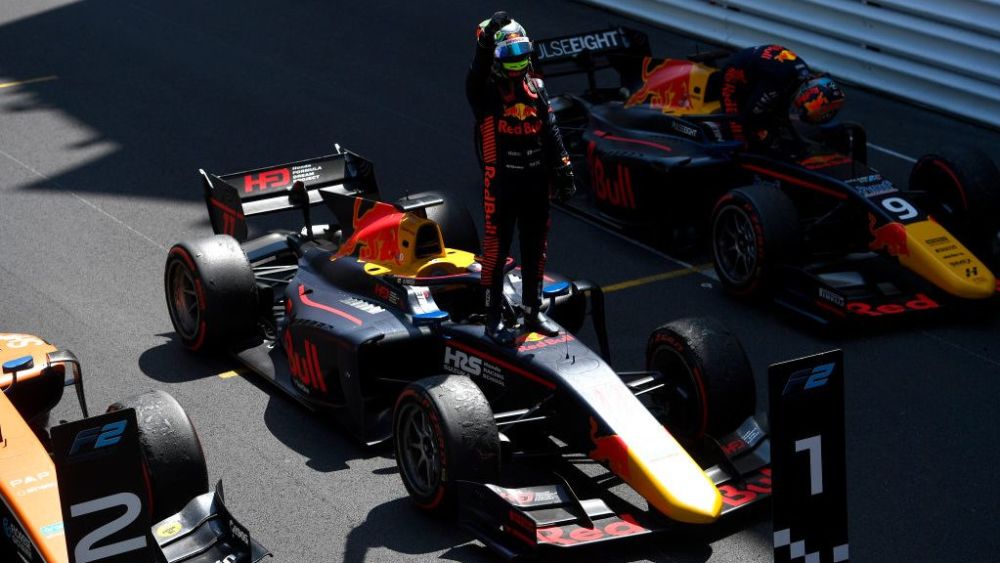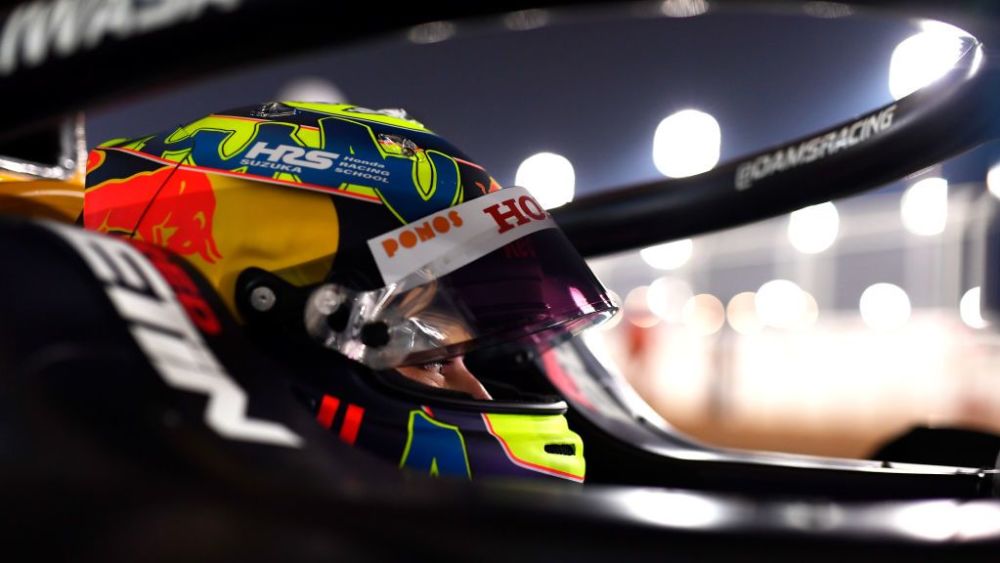Interview
Ayumu Iwasa: The racer to his core on a quest for perfection

A somewhat shy and unassuming figure, lying beneath the surface of Ayumu Iwasa is a will of steel. Unrelenting in his demands for more from himself, the Japanese racer eats, sleeps, and breathes motorsport, dedicating every waking moment to extracting what he knows he’s capable of.
That one-track mind has already carried the 21-year-old far. Moving halfway around the world in pursuit of his dreams and overcoming daunting language barriers, Iwasa has taken every obstacle in his stride. Drawing the good from the bad and the bad from the good, the DAMS driver sees every opportunity as part of his preparation towards the ultimate goal – shaping him into a driver worthy of a spot on the Formula 1 grid.
Yet by his own admission, that wasn’t always the dream. Fuelled by his parents’ passion for touring cars back at home and eager to follow in their footsteps growing up, the desire to race burned strong.
“When I was four years old, I tried karting. My parents were amateur racing drivers in Japan and sometimes they were racing against each other and fighting on track, and I started driving because of them,” Iwasa explained.
“There was one very good moment, it was on a deserted car park, and I was drifting all the way around it and I remember it was very fun. From that moment, I started to race when I was five. Honestly, I don’t think my parents wanted me to race because you have to spend quite a lot of money and it was dangerous, they knew that, but I really enjoyed driving. I loved cars before I drove in karting, so I really wanted to continue with racing, and I didn’t have any idea what I’d do without racing. I just wanted to drive a car, anything really, whenever I drove was an amazing moment, so that’s why I kept continuing to do it.”

He added: “Growing up I wasn’t looking to be an F1 driver – I didn’t watch F1 at all to be honest! I was watching drifting competitions and amateur racing that my parents were competing in because it was really fun to watch. I wanted to drive all the cars in the world. Then I had the confidence to drive cars faster than everyone, so that became my dream.”
However, turning that dream into a reality proved easier said than done. Budgetary issues meant he could only make a part-time graduation to single-seaters, with six cameo appearances in Japanese F4 and the Asian Formula Renault Series.
Then came what he sees as one of the defining moments of his journey so far - Suzuka Racing School’s series in 2019. Now rebranded to the Honda Racing School, the programme presented Iwasa a chance to hone his craft as he found his home behind the wheel in single-seaters, becoming a Honda Junior Driver and earning a vital scholarship.
“When I graduated for karting, everyone around me was telling me that I needed to drive a Formula 4 car if I wanted to go up to Super GT or Super Formula. From there, I tried a selection of categories in Japan and then I got the scholarship from the Honda Racing School after I finished in P1. I learnt a lot of things there and it was the start of my formula car racing life.
READ MORE: Simulators, baseball and even more racing: Getting to know the real Ayumu Iwasa
“After that moment, I realised the cars are very enjoyable to drive. Of course, the touring cars are fun as well, but the single-seater cars are more sensitive. There are a lot of things to learn about them, not only the tyres and the car, but the effects of the wind and various other situations. It’s very complicated, but fun to learn more about the car and racing, and now I’m focusing on being a Formula 1 driver.
“For me, that scholarship was the most important moment so far because I was struggling to race in Japan because of money. I didn’t have a budget to do the whole season in Japanese F4, so I just did two races and that’s why I went to Suzuka. After I got the scholarship, I could race in French F4 straightaway with Honda’s support. The programme is great to learn about racing and then to win the Championship, but also the budget was a really big point.”

Switching to single-seaters full-time coincided with his move to Europe to compete in the 2020 French F4 Championship. On track, things seemed effortless, wrapping up the title by 81 points with three races to go, having achieved a podium in every round and finishing no lower than sixth in each of the 21 races.
His heroic feats earned him a highly coveted spot in the Red Bull Junior Team and a second relocation in as many years. After trading his hometown of Osaka for Le Mans, a move to Milton Keynes was completed ahead of his Formula 3 debut with Hitech Grand Prix.
Except, another battle had emerged off track, with the language barrier proving extremely challenging, especially in a sport that relies so heavily on driver feedback and communication. With the same single-mindedness that he applied to racing, Iwasa seized any chance he could to improve his English.
“Actually, it was very tough. I’m not a good English speaker even now, but especially when I went to French F4,” he recalled. “It was quite a tough season, I won the Championship, but life was really difficult because I was living in Le Mans and no one spoke English, so I struggled a lot. Still, I enjoyed racing there with the FFSA Academy, it was really the time to learn about my driving performance and the car. It was my first year racing outside Japan, so it was a very important season.
READ MORE: Ayumu Iwasa: A race in my words
“Then when I went to F3, I moved to Milton Keynes in the UK. That was already tough as well because even though I knew a bit of English from high school, I wasn’t a great English speaker. I knew basic English, so I tried to learn the language by going outside of my flat. When I wanted to buy something, I didn’t use Amazon or get it online, I’d go shopping and use as much English as I could. Living in the UK was very important for me and now I think it was very helpful.
“I think it made me more mature (laughs). My parents let me drive and go by myself, so if I wanted to stay racing in the UK or in Europe, they completely supported me. Basically, it all depended on me. They don’t worry about me, if I do a good job in a race they don’t mind. I love it because I can focus on racing and spend the time I need to in Europe. If I stay in Japan, I have time to do completely different stuff, which I’m not a big fan of. I want to spend my time racing as much as I can because it’s my hobby as well. Even when I should get a bit of rest, I’m watching YouTube videos of racing. Cars are both my hobby and my break when resting.”

Finishing the 2021 F3 campaign in 12th place, he progressed up to Formula 2 with the highly experienced DAMS squad taking him under their wing and Iwasa immersing himself fully in his new environment. A chequered beginning saw him claim podiums in the Barcelona and Silverstone Sprint Races, before a second half resurgence enabled him to become one of the field’s fastest, netting two pole positions alongside two Feature Race victories.
Ultimately having to settle for fifth in the Standings, 2022 was in his view a mixed affair. By comparison, Iwasa has steadied the ship this season with Sprint Race wins in Jeddah and Monte Carlo accompanied by a masterful domination of the Melbourne Feature Race.
READ MORE: The evolution of Frederik Vesti
Accepting last year’s inevitable rookie learning curve, it was all about getting the results on paper a second time around. Sitting third at the halfway mark, 28 points behind leader Frederik Vesti, Iwasa knows that there’s plenty of time to wrestle back the Dane’s advantage and despite many eyes on him as one of six Red Bull juniors on the F2 grid and the lure of F1 within touching distance, he remains unfazed.
“Win the Championship. That is the main target, but honestly, I’m not thinking about it too much now. If I win the race in front of me, I get points, so with the team I am focusing on getting podiums and victories all the time. That is the one thing to focus on because I think at the beginning of last season, I didn’t think about the Championship that much, but also, I didn’t focus on winning races as much because I was trying to improve too many things.
“This season is my second year and now I know F2 quite well, so now it is the time to put it all together, but I still really need to improve the small things. On race weekends, being consistent is very important for this season.”

Emboldened by an ever-growing sense of confidence and his drastically improved English skills, Iwasa has blossomed into his own, but one thing hasn’t changed – his constant push for perfection. Even in the aftermath of glory on the streets of Monaco, he saw the result as the “minimum job” following a disappointing Qualifying.
Joking how ‘improvement’ is always one of the first words out of his mouth after every session, it’s precisely what spurs him to make the impossible possible.
“That’s my style! I think there is no perfect performance from my driving, and I think that links to the car as well, maybe there is no perfect car setup. That’s why I’m looking for improvements to get closer to being perfect, I want to be perfect – that is my one target. Also, if I can improve something, it’s a really happy moment for me. If I can improve my driving, even if it’s only one corner, then I will be very happy about it and then I will be looking for another improvement.
“It’s my life and it’s my routine, so that’s why I’m looking for improvements all the time. I think it’s quite an important thing to be able to win races. If I win a race, next time the other drivers will improve to try to beat me. That’s the life in racing. So, if I want to win the race, I have to improve every time, it’s my key.”